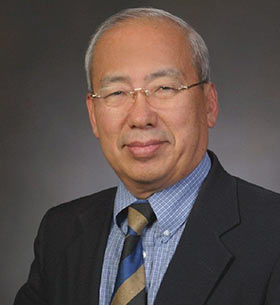
Bridging University Research to Commercial Product: the Development of the Minerals Refining Company’s Cleaning and Dewatering Technology
Many times, the technologies that will lead us into tomorrow don’t come from the mind of a startup entrepreneur. They come from the halls of academia.
Minerals Refining Company wouldn’t exist were if not for the work of Dr. Roe-Hoan Yoon, the Chaired Professor and Director of the Virginia Tech Center for Advanced Separation Technologies (CAST).
For nearly four decades, Dr. Yoon has researched methods to improve separation and recovery of fine coal and minerals. He has invented and licensed equipment, additives and processes that have been employed by the mining industry to produce billions of dollars’ worth of raw materials and to date has 57 U.S. and international patents to his credit, many of which have been commercialized.
A profile of Dr. Yoon on the Virginia Tech website described how his life’s work began in high school chemistry, when the class learned how detergents remove dirt from clothes. “He was hooked on the ‘why factor,’” the article notes. He took that teenage fascination with bubbles and, in the 1980s, developed the microbubble flotation process, a term he coined to advocate the use of small air bubbles to separate fine coal from mineral matter and recover the valuable energy resource.
In 2010, Dr. Yoon and research partner Dr. Gerald Luttrell made a laboratory breakthrough in recovering the finest fractions of minerals and coal. Their process, now patented as the Hydrophobic-Hydrophilic Process, uses a water-fearing liquid to displace water and mineral impurities from the surface of fine and ultrafine coal particles, converting waste slurry into a quality, salable product, and in the process reducing the amount of waste sent to impoundments.
Enter coal industry veterans E. Morgan Massey and Dr. Stanley Suboleski.
Upon sharing batch lab scale results with Dr. Stanley Suboleski, the former Professor and Department Head of Mining and Minerals Engineering at Virginia Tech, the group approached industry veteran and long-standing supporter of the university, E. Morgan Massey, whose company, Evan Energy Investments, immediately recognized the potential of the technology.
MRC reached an agreement in September 2012 with Virginia Tech Intellectual Properties, Inc. (VTIP) to license the HHS Process. VTIP is the affiliated corporation of Virginia Tech responsible for transferring research discoveries to industry and facilitating the licensing of inventions to businesses.
“Scale-up and commercialization of a new technology requires a team, involving motivated students, experience, and industry support,” Dr. Yoon said recently. “I believe that we have all of these essential elements in place for another commercial success story.”
For more information about the commercialization of the technology, check out our press release.

